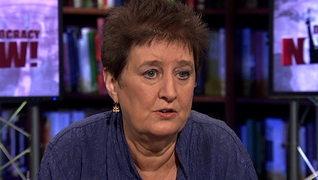WASHINGTON -- Around 2008, an Ebola outbreak in Africa sparked a renewed push within the U.S. biomedical research community to find a vaccine. A company called Integrated BioTherapeutics Inc. was given a $5.8 million contract from the National Institutes of Health for vaccine research.
Integrated Biotherapeutics, with subcontractor Protein Sciences Corp., began exploring a way to develop proteins associated with Ebola as a means of boosting antibodies. They hoped to introduce benign elements of the virus to the immune system, priming the body to more quickly recognize and attack the disease in the event of actual Ebola exposure. Protein Sciences had done the same work on an influenza vaccine, with good results. Scientists had confidence they could replicate the flu formula for other diseases.
Integrated Biotherapeutics, with subcontractor Protein Sciences Corp., began exploring a way to develop proteins associated with Ebola as a means of boosting antibodies. They hoped to introduce benign elements of the virus to the immune system, priming the body to more quickly recognize and attack the disease in the event of actual Ebola exposure. Protein Sciences had done the same work on an influenza vaccine, with good results. Scientists had confidence they could replicate the flu formula for other diseases.
































